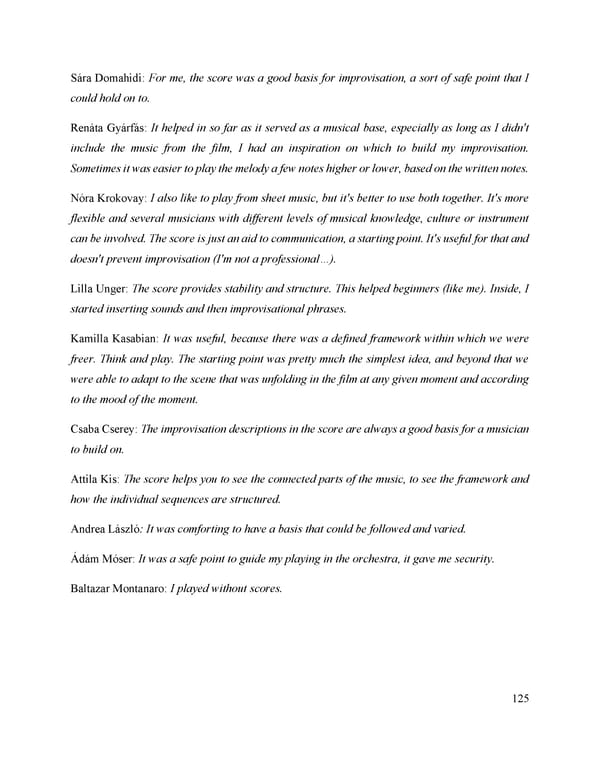Sára Domahidi: For me, the score was a good basis for improvisation, a sort of safe point that I could hold on to. Renáta Gyárfás: It helped in so far as it served as a musical base, especially as long as I didn't include the music from the film, I had an inspiration on which to build my improvisation. Sometimes it was easier to play the melody a few notes higher or lower, based on the written notes. Nóra Krokovay: I also like to play from sheet music, but it's better to use both together. It's more flexible and several musicians with different levels of musical knowledge, culture or instrument can be involved. The score is just an aid to communication, a starting point. It's useful for that and doesn't prevent improvisation (I'm not a professional…). Lilla Unger: The score provides stability and structure. This helped beginners (like me). Inside, I started inserting sounds and then improvisational phrases. Kamilla Kasabian: It was useful, because there was a defined framework within which we were freer. Think and play. The starting point was pretty much the simplest idea, and beyond that we were able to adapt to the scene that was unfolding in the film at any given moment and according to the mood of the moment. Csaba Cserey: The improvisation descriptions in the score are always a good basis for a musician to build on. Attila Kis: The score helps you to see the connected parts of the music, to see the framework and how the individual sequences are structured. Andrea László: It was comforting to have a basis that could be followed and varied. Ádám Móser: It was a safe point to guide my playing in the orchestra, it gave me security. Baltazar Montanaro: I played without scores. 125
 Lost Analogue: Exploring Film, Music, and Interdisciplinary Methods in Education Page 125 Page 127
Lost Analogue: Exploring Film, Music, and Interdisciplinary Methods in Education Page 125 Page 127